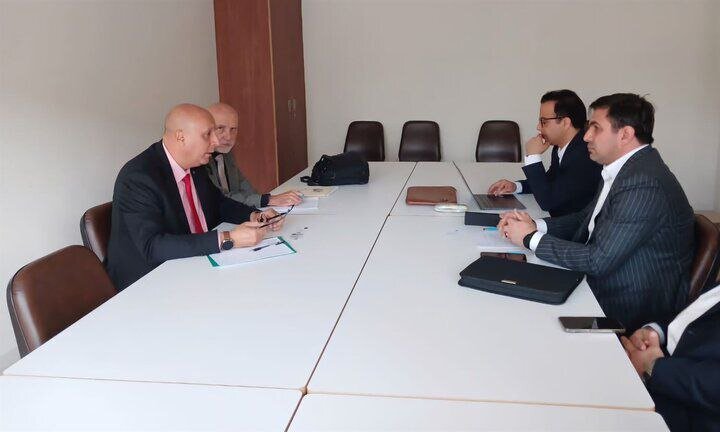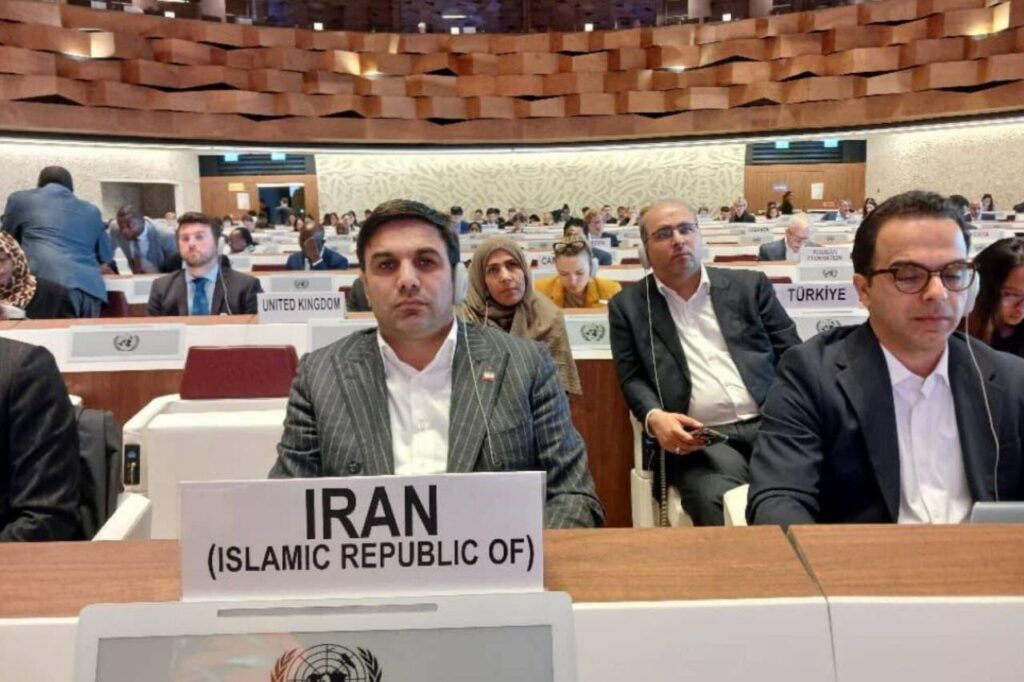Tehran – Mohammad Mosen Sadr, head of Iran’s information technology organization, called unilateral enforcement measures and digital disparities the key challenges of the information society.
Addressing the 28th session of the United Nations Commission on Science and Technology Development (CSTD) held from April 7-11 in Geneva, Switzerland, he said the session will serve as a platform to address the challenges facing information and communications technology.
The main purpose of the event is to create a shared vision and collective commitment to build an information society where all countries and individuals can benefit from information, he added.
“As part of the Global Information Association, Iran has made great strides in this direction. In line with the Economic and Social Advancement Programme, Iran has made great strides in expanding its fiber optic network, developing mobile broadband in rural and urban areas, and promoting electronic services in the fields of health, trade, education, agriculture and science.”
Unfortunately, international mechanisms designed to provide financial and technical assistance have not been implemented effectively and are expanding the technology gap between countries, officials added.
According to Tunis’ agenda, referring to the goals of Internet governance, Sadr argued that the declaration argues that all governments should have equal roles and responsibilities for international internet governance, but that this goal remains unmet.
Unilateral sanctions limit access to certain hardware and software in some developing countries, preventing them from taking advantage of available opportunities. It also undermined the competitiveness and potential environment needed for progress, Sadr emphasized.
Referring to Paragraph 70, Global Digital Compact, officials continued to call for the development of practical mechanisms to enhance international digital cooperation and eliminate unilateral measures.
He also called on cross-border businesses that utilize digital and artificial intelligence to take more responsibility, maintain cultural diversity and multilingualism, and consider the state sovereignty of the country in the implementation of the compact.
Officials expressed optimism that the cooperation of all countries and international organizations will identify challenges and propose practical solutions to address them.
28th CSTD
The Science and Technology Committee Development Committee (CSTD) held 28 sessions from April 7th to 11th.
CSTD is an auxiliary body of the Economic and Social Council (ECOSOC) and the Focus for Science, Technology and Innovation for UN Development (STI) and analyzes STI methods of analyzing information and communications technology (ICT) as an enabler of the 2030 agenda.
It serves as a forum for sharing strategic planning, lessons learned and best practices, providing foresight into the key trends of STIs in key economic, environmental and social sectors, and brings attention to emerging and disruptive technologies.
This will encourage concrete collaboration between member states, NGOs and actors in the science, technology and development fields. Each year, the committee had two prioritized themes in its 28th session, including “economic diversification in an accelerated world of digitalization” and “foresight and technical assessment of technology for sustainable development.”
Cuba is looking to benefit from Iran’s expertise in a smart government
Cuban’s first vice minister of communications, Ernesto Rodríguez Hernández, during a meeting with SADR, expressed Cuba’s interest in leveraging Iran’s experience in establishing clever government and cybersecurity as a top priority, Mehr reports reported.
(The conference was held on the sidelines of the 28th session of the United Nations CSTD).

Hernandez expressed his satisfaction with the positive previous interaction between the two countries, saying, “Cuban officials are determined to develop a relationship with Iran, and the company is preparing proposals for further cooperation with Iran.”
Officials also mentioned the existence of Iranian companies at last year’s technology exhibition in Cuba, saying “positive interactions have been established between the two countries in the cybersecurity sector.”
Saddle emphasized the need to develop and deepen cooperation between the two countries. Referring to the recent interactions between Iran and Cuba, authorities said Iran’s strategy focuses on the development of these relationships. He also announced that Iran will be holding training courses for Cubans, boosting joint efforts in sectors such as e-government and smart government.
Sadr also proposed the establishment of a joint committee to follow up on issues between the two countries.
Cuban officials have also announced that they have expanded their official invitations to Iranian businesses to attend the country’s 2026 exhibition and that Cuba is ready to take part in an international event in Iran.
Tehran, Havana boosts cooperatives in various ICT sectors
On November 24, 2024, Iran and Cuba signed a Memorandum of Understanding (MOU) to strengthen cooperation with the postal service.
A delegation led by Information and Communications Technology Minister Sattal Hashemi visited South America and the Caribbean to support joint efforts in the ICT sector.
At a meeting in Havana, Hashemi and Cuba’s deputy prime minister, Eduardo Martinez Diaz, explored avenues to boost ICT relations, ISNA reported.
In reference to substantial advances in Iran’s scientific and technical field, Martinez called for an expansion of joint activities in the AI and communications sectors.
Authorities emphasized that there are many opportunities available to promote cooperation and carry out collaboration.
Iranian officials have announced that on his part he is ready to transfer knowledge and expertise in the field of science and technology to Cuba.
The signed MOU focuses on improving and promoting mail exchanges between Tehran and Havana within the Universal Postal Union (UPU) general regulatory framework.
mt/mg

